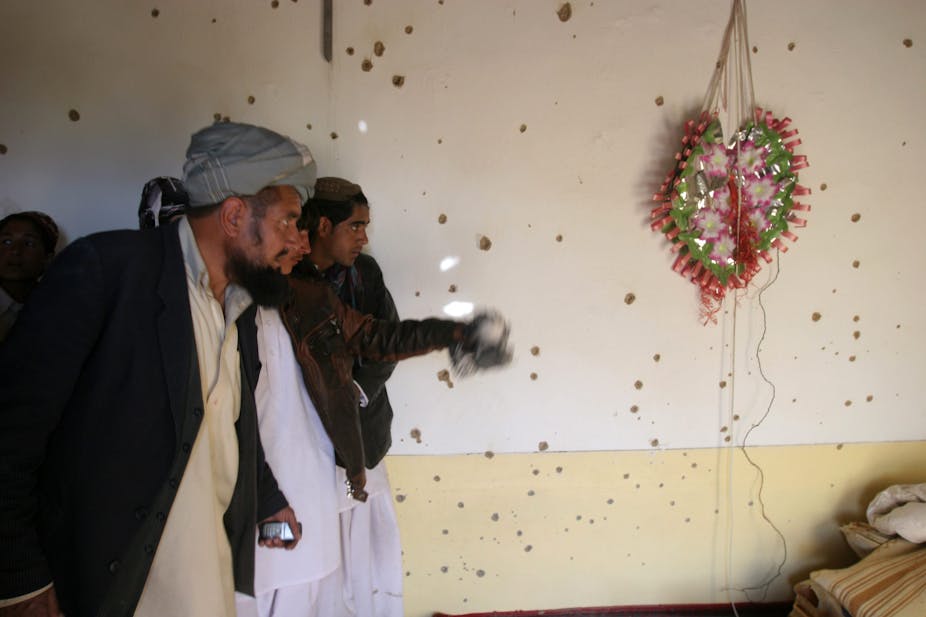Our Chief of Army, Lieutenant General David Morrison, has told Australia, “The idea that we can will away war because we are about to withdraw from one that went longer and ended less conclusively than we liked is wishful thinking.”
I believe this is simply wrong. And I believe a lot of Australians feel the same way.
General Morrison’s made this statement at Canberra University’s National Security Institute last week, when he warned that further financial cuts to military spending “could pose a real risk to the effectiveness of the armed forces and lead to a repeat of ‘mistakes’ made after the Vietnam War”.
In reality, it is those who believe war will succeed who are, Disney-like, wishing upon a star; the star bright with bigger, more expensive, more destructive weapons of war.
Doomed to repeat the mistakes of history
According to General Morrison, after the Vietnam War Australians experienced, and risk repeating today, a kind of “historical amnesia that is breathtaking in its complacency”.

Canberra reduced the nation’s military capability in the name of an anticipated “peace dividend” — a dividend based on myopic strategic policy making and a poor understanding of Australia’s geography and alliance arrangements that never eventuated. However, it is not those who oppose high levels of military expenditure who have historical amnesia, it is those who advocate war as a solution to disputes between nations.
Nobody believes war is something that you can wish or will away, but, equally, war is not something that just sneaks up on you, or magically falls out of the sky. Nor is it, as many claim, just a reflection or expression of human nature. It is precisely this way of thinking that lead to the view that nations make “mistakes’ after wars by not maintaining high levels of military preparedness.
War is unnatural
I regard war as the result of deliberate decisions, made by leaders or their small group of advisers – small groups who see specific gains to be made, sometimes personal, sometimes communal or national, by the use of armed force regardless of the costs to others.
This is not a natural state of affairs; it is a deliberate decision to use force to gain political ends. The language used to justify the use of the military encourages us to think that war is an acceptable or "normal” response to dispute resolution.
Thus we are told we have to have military formations capable of fighting against a “credible peer competitor”. A “credible peer competitor” used to be called the enemy; and the aim of our army is to kill members of the enemy’s army and destroy enemy property and infrastructure.
Why we fight
It would be tragic enough if the only — or even a majority of — casualties in modern warfare were military personnel, but, of course, the vast majority (upward of 90%) of casualties in the wars fought in recent times have been, and continue to be, civilians — mainly women and children.
Astonishingly, we look with horror and rightly condemn the sickening brutality of dictators such as Bashar al-Assad of Syria in his war against his own people, but we look with equanimity upon the reign of terror we wreaked upon the population of Iraq, and believe we have learned the right lessons from that war.
US Civil War Union General William Tecumseh Sherman, one of the most successful soldiers in modern history, said it bluntly but accurately; “war is cruelty. There is no use trying to reform it”.

War is something that can and should be avoided, primarily because it does not work. Wars rarely achieve their stated aims even for the victorious parties, and the original aims of going war are soon subverted into something quite different by the course of the war itself.
Even in victory, the history of warfare demonstrates that the benefits gained prove to be short-term and illusory. Today’s wars rarely end with surrender ceremonies and tickertape parades. They end is a fog of ambiguity, and it is easier to discern what has been sacrificed than what has been gained.
Wars don’t win peace
It is the proponents of the use of military force who have drawn the wrong conclusions at the end of wars. You would think by now we would have worked out that killing people and destroying their lives, homes, towns, and cities does not create peace.
Military victory does not guarantee compliance by the defeated belligerent, or act as a deterrent against future outbreaks of war. International stability, domestic prosperity, and peace come through the strategy of offering attractive alternatives to war: inducements to trade, commerce and investment, access to resources on favourable terms, the free movements of people with equal political and economic opportunities, for example.
These strategies have been employed by members of the European Union and have proven remarkably successful in lessening the likelihood of war in Europe over the past 60 years.
Surely in dealing with our neighours and our region Australia be better off showing consideration, patience and respect rather than reaching for our gun.

